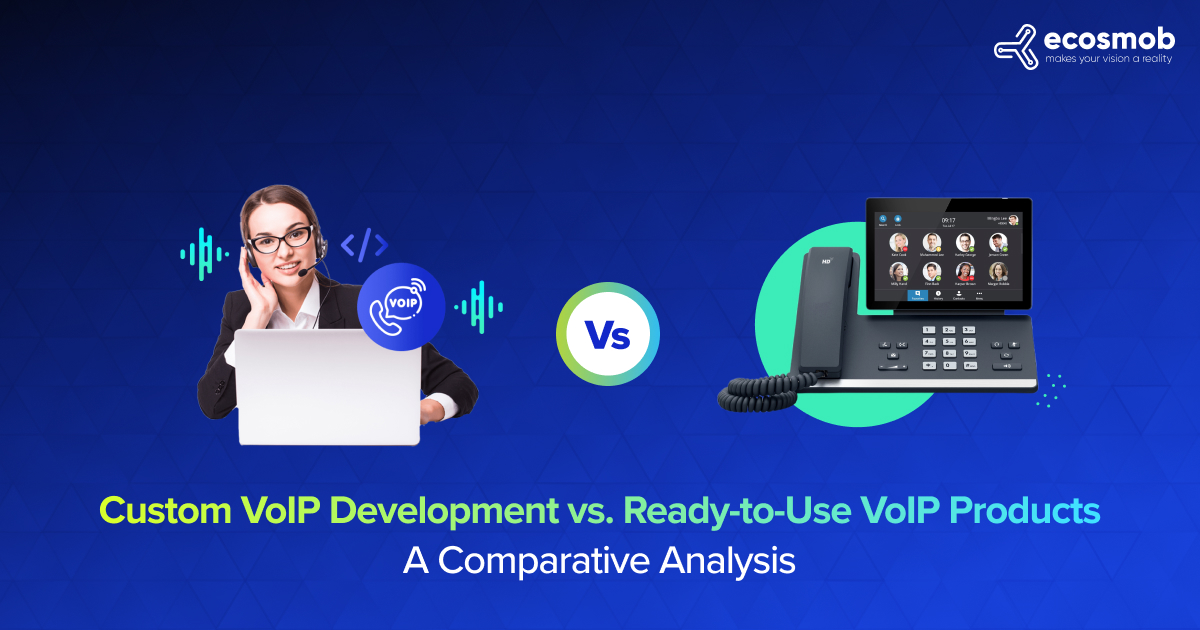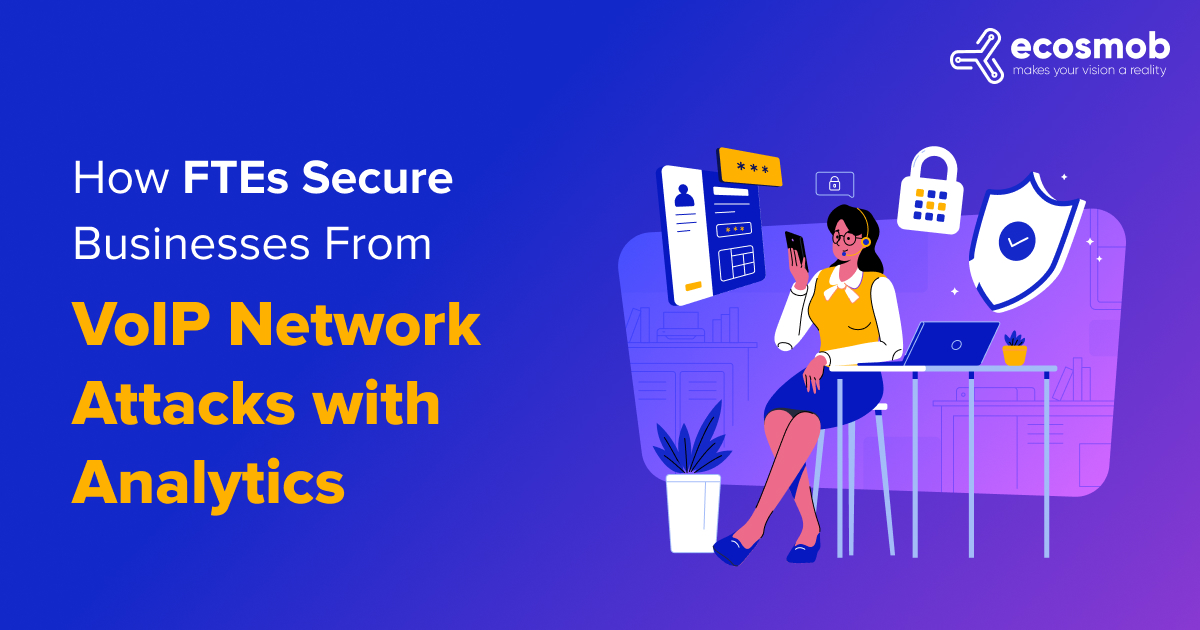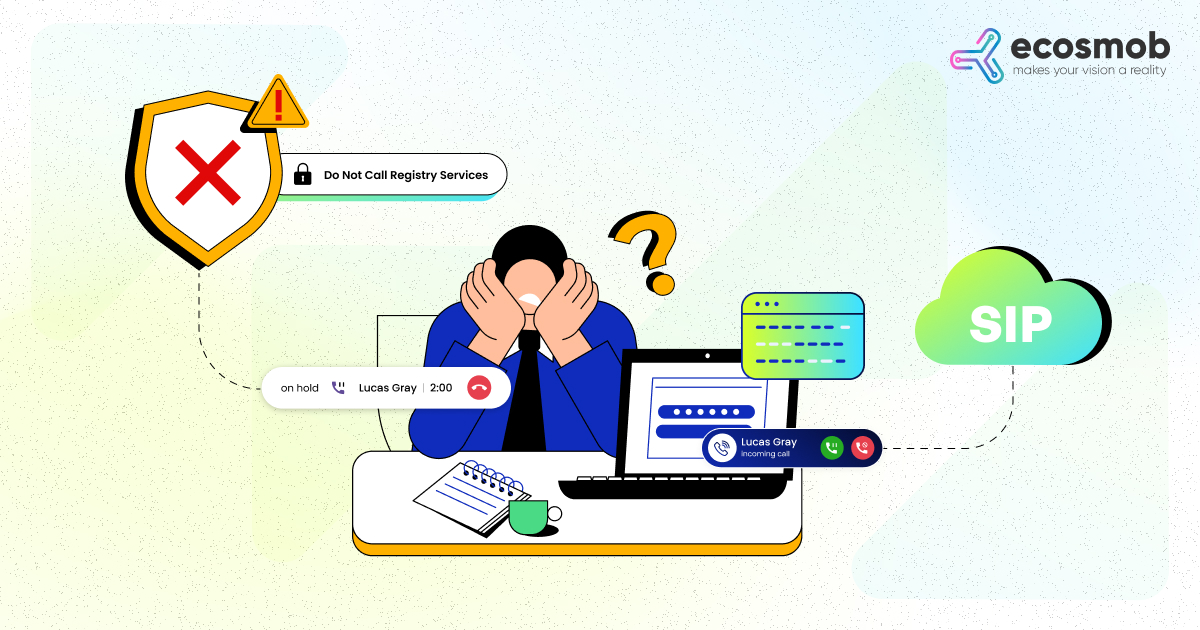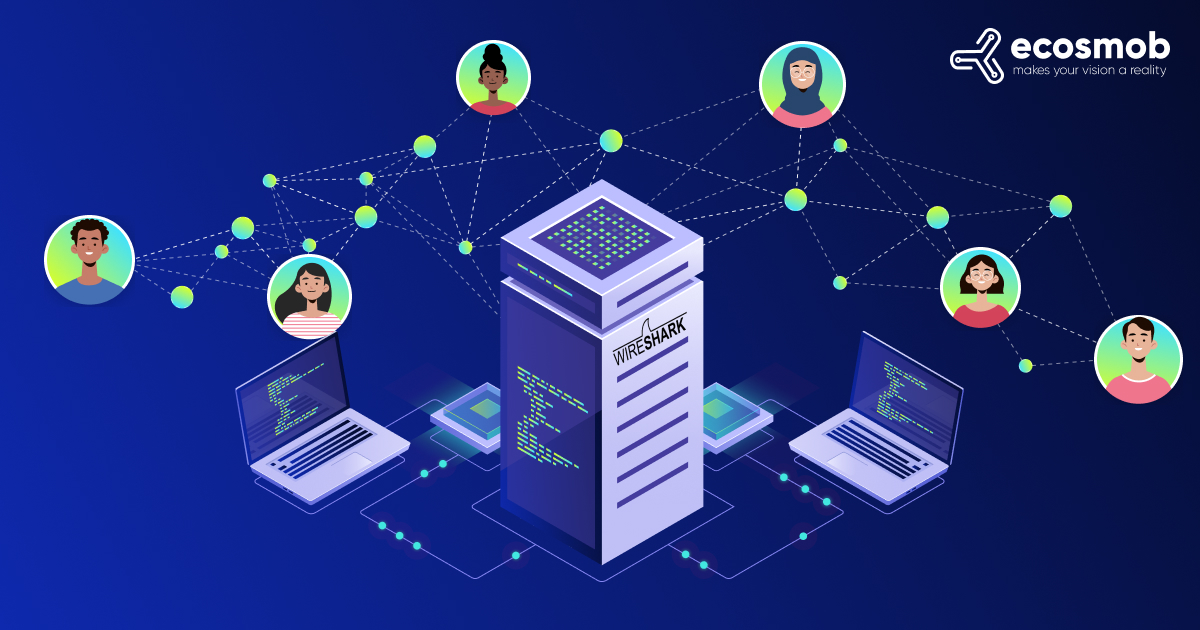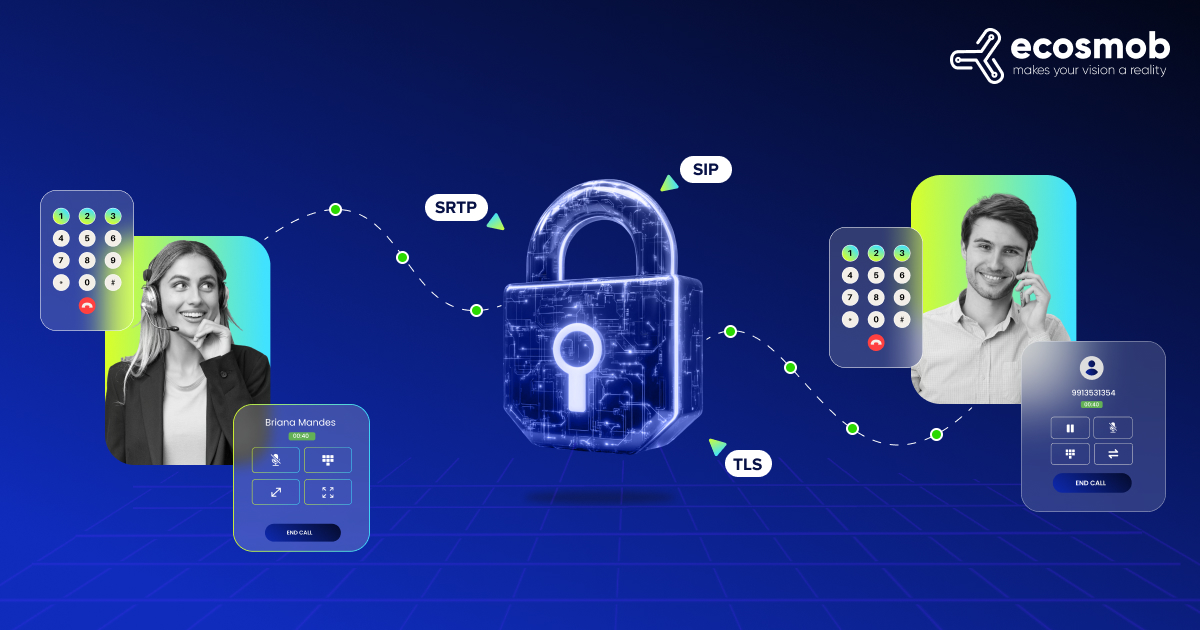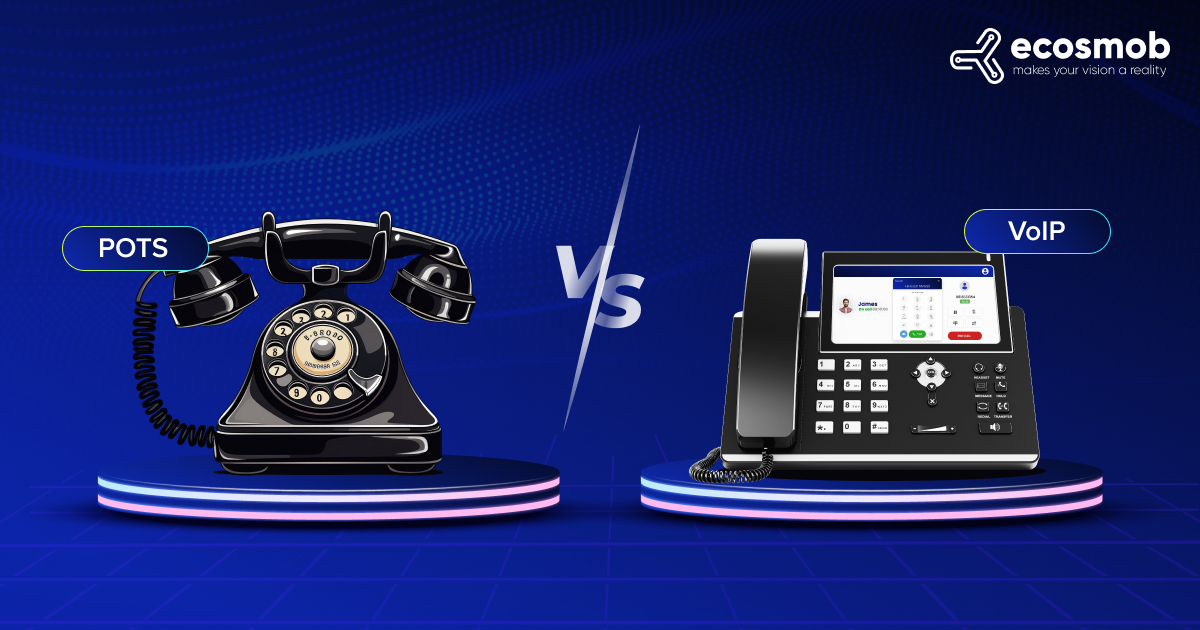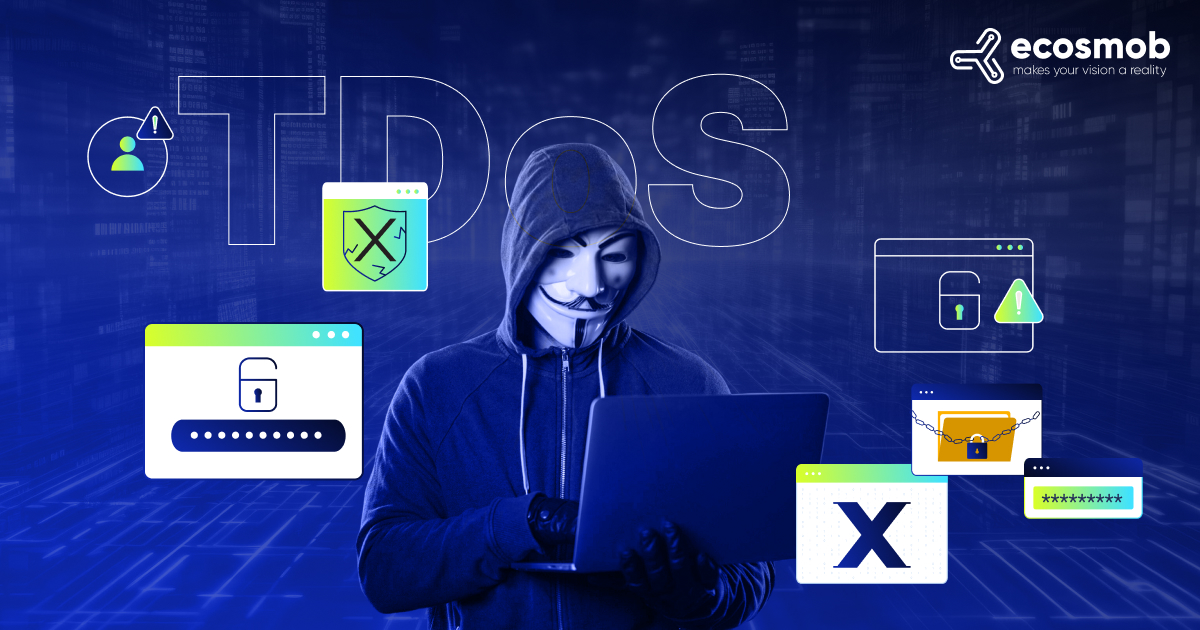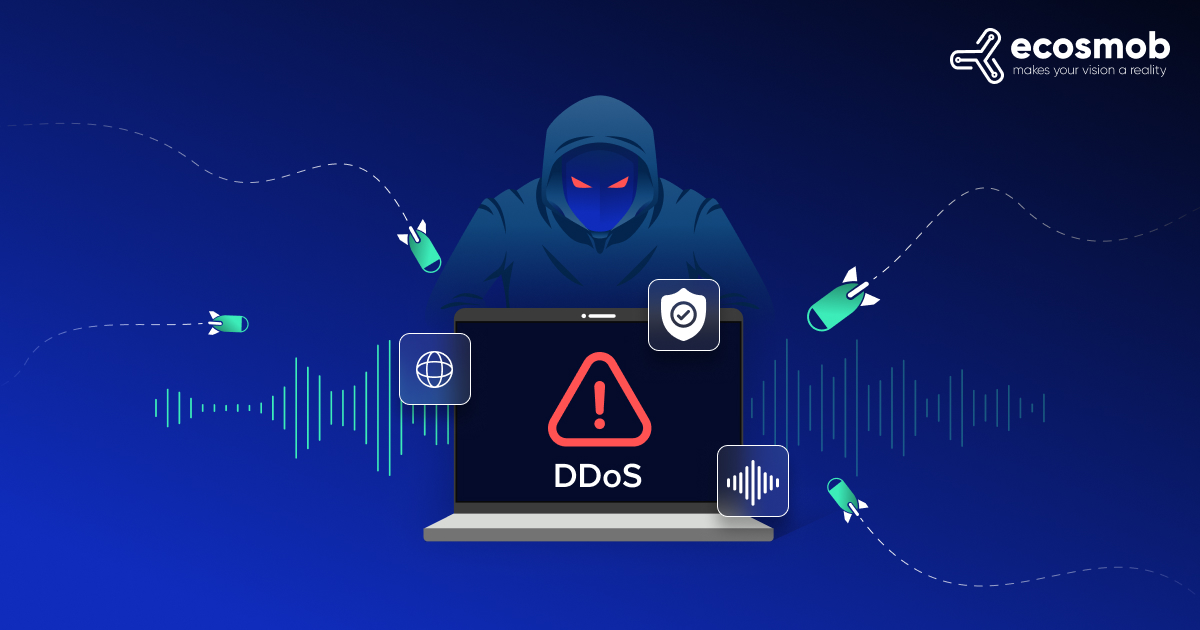QUICK SUMMARY
Ever wondered how top businesses keep their VoIP communications safe from the sneakiest cyber threats? It’s all about combining the smarts of advanced analytics with the sharp eyes of dedicated security experts.
As much as VoIP drives connectivity and cost-efficiency, it brings about its share of vulnerabilities, making VoIP network security a critical aspect for any business.
To handle this effectively, it’s wise to hire VoIP developers who specialize not just in deployment but in securing VoIP infrastructure. Having a team of experts focused solely on VoIP network attacks means that threats can be identified and mitigated before they escalate into costly breaches.
Expert security. Just a click away. Secure your enterprise VoIP with Ecosmob.
The Vital Role of Full-Time Equivalents in VoIP Security
Imagine if your enterprise VoIP system is compromised during a high-stakes conference call. Sensitive information could be leaked, or worse, the communication could be hijacked. Here’s where dedicated Full-Time Equivalents (FTEs) specializing in VoIP security become invaluable.
They don’t just monitor systems; they embody the frontline defense against such disruptions.
FTEs dedicated to VoIP security are no longer a luxury but a necessity. These professionals are not just ticking boxes; they’re constantly analyzing VoIP network health to ensure seamless and secure communications.
By having experts constantly refining security protocols and responding in real time to threats, companies can safeguard their reputation and operational integrity.
Why Enterprise VoIP Requires Robust Security
As enterprises rely heavily on VoIP for communication, safeguarding this technology cannot be overstated.
According to Gartner, VoIP systems are prone to various security threats, from eavesdropping and vishing to DDoS attacks (which will become the most common cyberattack).
Each of these vulnerabilities can lead to significant disruptions, financial loss, and damage to reputation.
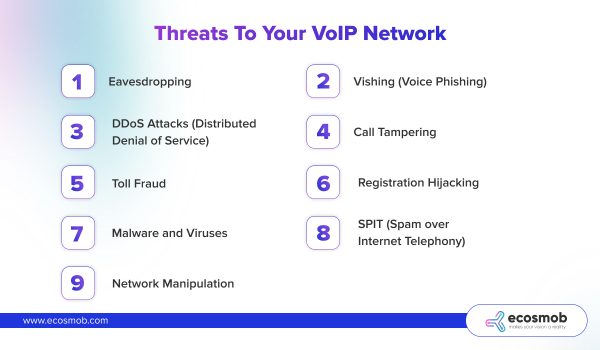
Threats To Your VoIP Network
- Eavesdropping
- Vishing (Voice Phishing)
- DDoS Attacks (Distributed Denial of Service)
- Call Tampering
- Toll Fraud
- Registration Hijacking
- Malware and Viruses
- SPIT (Spam over Internet Telephony)
- Network Manipulation
Analytics for Advanced Threat Detection
Security analytics is one of the most effective tools in the VoIP security arsenal. These tools go beyond traditional defense methods by employing advanced data analysis to monitor, detect, and react to anomalies in real-time.
Here’s how data analytics is changing the game:
- Anomaly Detection: By continuously monitoring traffic, analytics can spot unusual patterns that may signify a security issue, such as an ongoing DDoS attack or an attempted breach.
- Trend Analysis: Over time, analytics tools can identify trends that help predict potential security threats, allowing preemptive action.
- Automated Alerts: The system can automatically alert administrators as soon as a threat is detected, ensuring rapid response to mitigate risks.
- Geolocation Analysis: Analytics can track traffic origins to identify calls from high-risk or unusual locations, adding a layer of security.
- Machine Learning Models: These tools learn from the data they process to improve threat detection and prevention strategies over time.
- Real-Time Threat Intelligence: Integrating real-time threat intelligence helps identify and respond quickly to new vulnerabilities and attack vectors.
Implementing a Comprehensive Security Solution for VoIP Infrastructures
Incorporating analytics into VoIP security strategies is imperative to set up a formidable security solution for VoIP infrastructures. This can involve:
- Deploying SIEM Systems: Security Information and Event Management (SIEM) systems collect and analyze logs from network devices, offering a comprehensive view of the network’s security status.
- VoIP Security Appliances: Specialized hardware can provide additional layers of security (intrusion detection systems and firewalls), designed explicitly for VoIP.
- Regular Assessments: Utilizing VoIP network assessment tools to conduct regular inspections of the VoIP setup helps maintain its integrity against potential threats.
The Benefits of a Secured VoIP System
Investing in a robust VoIP security system managed by dedicated FTEs and enhanced with analytics delivers compelling returns:
- Enhanced Business Continuity: Secure VoIP systems minimize downtime and ensure that business operations run uninterrupted, thus preserving productivity and profitability.
- Customer Trust: By protecting client communications, businesses enhance their credibility and build stronger relationships, increasing customer loyalty and retention.
- Competitive Advantage: Companies with proven, robust cybersecurity measures, including secure VoIP communications, differentiate themselves in the market, attracting more partners and opportunities.
- Cost Savings: Effective VoIP security reduces the risk of financial losses associated with data breaches, including potential fines, legal fees, and remediation costs.
- Regulatory Compliance: Meets standards and regulations that mandate the protection of data privacy and security.
General VoIP Security Best Practices
Ensuring the security of a VoIP network involves more than just utilizing analytics. Here are some general best practices for maintaining a secure VoIP environment:
- Regular Software Updates: Keep your VoIP systems and related software up to date with the newest security patches and updates to reduce the risk of vulnerabilities.
- Strong Authentication Measures: Implement robust authentication protocols, including multi-factor authentication (MFA), to prevent unauthorized access.
- Encryption: Use end-to-end encryption for all VoIP communications to protect data from being intercepted during transmission.
- Network Segmentation: Segmenting the VoIP traffic from the rest of the network can reduce the risk of VoIP-born threats spreading to other systems.
- Firewall Configuration: Properly configure firewalls to only allow VoIP traffic from trusted sources and block identified threats.
- Employee Training: Ongoing employee training programs focused on the basics of VoIP security, threat recognition, and response strategies can reduce the risk of security breaches due to human error.
Conclusion
Since cyber threats aren’t going anywhere, the importance of analytics in securing real-time communications seems pretty straightforward.
Businesses looking to protect their communication networks should definitely consider enhancing their VoIP systems with advanced security analytics.
Remember, when it comes to securing your VoIP network, it pays to have experts on your team. Consider the long-term benefits of hiring skilled FTEs who fortify your network against evolving threats.
This is not just about preventing losses; it’s about making a strategic investment in the future of your business communications.
Amplify your defenses with custom VoIP solutions, and if you already have one, let our experts at Ecosmob help you assemble a team dedicated to meticulously fortifying your network security!
You can stay ahead of threats! Let our experts help you protect your VoIP network from security attacks.
FAQs
How does real-time threat intelligence benefit VoIP security?
Real-time threat intelligence provides up-to-the-minute information on emerging threats, enabling proactive adjustments to security measures, thus keeping VoIP systems one step ahead of potential attackers.
Can VoIP security measures impact system performance?
While extensive security measures can affect system performance, proper configuration, and regular maintenance ensure a balance between security and performance.
How often should VoIP security systems be audited?
VoIP security systems should be audited annually or more frequently, depending on the security landscape and previous incident history.
Are there legal implications for inadequate VoIP security?
Yes, businesses may face legal consequences for failing to adequately protect sensitive data, potentially resulting in fines and damage to business reputation.
What are common signs of a compromised VoIP system?
Common signs include unexpected changes in billing, unusual call patterns, degraded call quality, and unauthorized changes to system settings.



